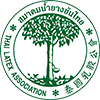US President Donald Trump�s tariffs could lead to a contraction in Thailand�s GDP growth for two consecutive quarters.
Pongnakorn Pochakorn, Senior Economist at the Fiscal Policy Office, made the remarks during a roundtable session titled �Trump�s Global Quake: Thailand Survival Strategy�, hosted by Krungthep Turakij, Thansettakij, and PostToday at the Waldorf Astoria Bangkok Hotel on Wednesday.
Pongnakorn forecast that global economic growth could fall from 3.2% to 2.8% as a result of the US tariffs. �Thailand � which relies heavily on exports � would likely face two consecutive quarters of negative GDP growth,� he warned.
He highlighted that the Volatility Index (VIX) had surged from its normal level of 25 to 46.98, reflecting heightened uncertainty around US trade policy. The current VIX level surpasses that recorded during the Russia-Ukraine war and is comparable to the level seen during the Covid-19 pandemic, he added.
Pongnakorn noted that the US tariff increases would likely trigger a decline in Thai exports and manufacturing capacity, which in turn would affect household income, reduce consumption, and increase the public debt-to-GDP ratio.
Risk of Economic Recession Piyasak Manason, Head of Economic Research at InnovestX Securities, warned that the global economy could face a severe recession if multiple countries retaliate with their own trade barriers in response to the US tariff hikes.
If trade negotiations fail, Thailand could suffer a 1.1% contraction in GDP growth and a 5% contraction in export growth, he said.
However, he estimated the probability of a full-blown global trade war at just 10%, expressing confidence that many parties would enter into negotiations to ease tensions and reduce tariffs. If such talks succeed, Thai GDP growth may slow from 2.5% to 1.4%, while exports could contract by 1�3%.
�In the next phase, we�ll see many countries engage in intense negotiations, but smaller nations � particularly in Asia � may have limited bargaining power and could be forced to make concessions,� he said.
Piyasak also noted that it would be challenging for the Bank of Thailand to cut interest rates amid economic uncertainty and inflationary pressures. If the economy slows significantly, the central bank might lower rates no more than three times, or possibly not at all.
Adaptation and Negotiation Nonarit Bisonyabut, Research Fellow at the Thailand Development Research Institute, cautioned that Trump�s trade policies could escalate the US-China trade war, with smaller countries like Thailand caught in the crossfire and pressured to pick sides.
He urged Thailand to prepare for negotiations strategically, emphasising that the US is primarily seeking unilateral advantages rather than mutual gains. He also advised Thailand to consider external factors such as large-scale protests and the possibility of the US Supreme Court ruling that tariff hikes require congressional approval.
�Thailand must focus on economic stimulus through collaboration between the government, private sector, and the people,� he said, adding that the country should assess which industries would be most affected by the US policies and which products have not yet seen tariff reductions for the US.
�Adaptation and negotiation must drive real change in Thailand,� he concluded.
Source : The Nation |








